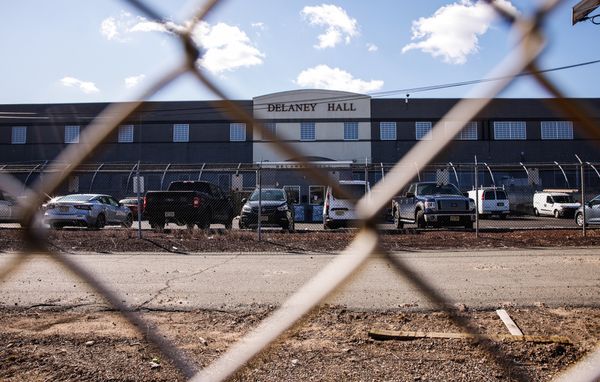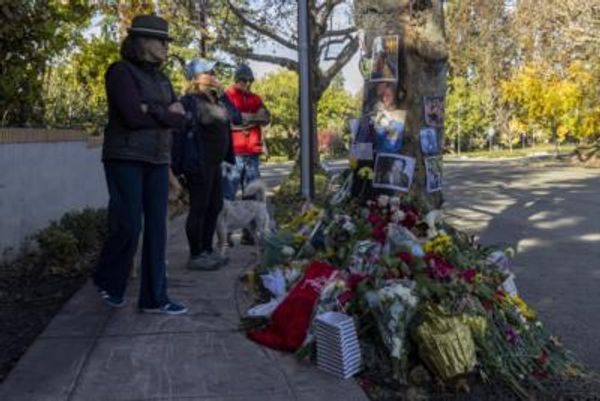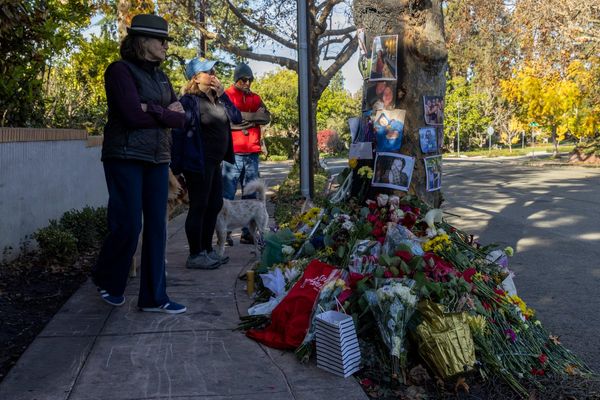Property owners who list their homes for short-term accommodation in Brisbane have been warned: return your home to the long-term rental market or face a 50 per cent rates hike.
Lord Mayor Adrian Schrinner handed down the LNP administration's $4 billion budget today and told ABC Radio Brisbane this morning he hoped the measure would force more home owners to return their properties to the general rental market.
Mr Schrinner admitted the council does not have exact data on how many short-term accommodation properties operate in Brisbane, but said it was clear "thousands" of homes had been removed from the long-term rental market while Brisbane is in a housing crisis.
Brisbane's rental vacancy rate for May was just 0.6 per cent, he said.
Short-term accommodation data analysis company AirDNA estimated about 3,600 homes were currently listed on sites like Airbnb across the greater Brisbane area, including Ipswich and parts of Moreton Bay and Logan.
"If owners had these properties in the market for short-term, overnight stays – that is their choice, but what they'll be facing now is a 50 per cent increase in their rates.
"We don't want anyone to pay that, we want them to put those properties back into the rental market for long-term use."
The rates hike will not impact owners that only lease out a single room, granny flat or shared accommodation, but will directly target owners of entire properties listed for overnight stays.
The council's measure will only apply to properties rented out on the short-term market for more than 60 days a year.
Airbnb country manager for Australia and New Zealand Susan Wheeldon said the council's move would hurt people who use short-stay accommodation, including people who travel to Brisbane for care and family support.
"As Queenslanders face sharply rising costs of living and economic uncertainty, now is not the time for making sudden policy changes, without consultation, that will put significant strain on households across Brisbane," she said.
"Differential rates will place further financial pressure on everyday Queenslanders who share their homes to help make ends meet."
She said short-term rentals "generally comprise a tiny proportion of the overall Australian property market".
The average annual rates bill for a non-owner occupied residential property in Brisbane for 2021-22 is $1,039, meaning owners who choose to pay the rates hike would be slugged an average of $1,558.5.
However, residential rates will rise an average 4.93 per cent, increasing those fees again.
Plan opts for 'stick' over 'carrot'
Real Estate Institute of Queensland chief executive Antonia Mercorella said the peak body had "long supported" incentives to encourage property owners to put their properties back onto the long-term rental market.
"There's no doubt that if we saw even half of these properties converting onto the long-term rental market in the Greater Brisbane area that this would offer some reprieve. It certainly wouldn't be enough additional supply to meet the level of demand, but every house does count during a crisis," Ms Mercorella said.
"However, while we understand the principle behind this initiative is positive and is about recognising and addressing the rental crisis, it's disappointing to see this initiative takes a 'stick' rather than a 'carrot' approach."
Ms Mercorella said the state's rental crisis was a "significant and complex problem" and both state and local governments should spend more time investigating why property owners were opting for the short-term market,
"For instance, given tourist driven demand, we need to recognise that the holiday letting market can be incredibly lucrative with high return over a short period of time and allows flexibility for property owners to use the property themselves, but the other key factor is that the short-term market is not regulated with the strict and onerous rental laws that govern the long-term rental market," she said.
'We've had hundreds of complaints'
Noosa Shire Council this year introduced a $950 registration fee for short-term accommodation properties, amid a crackdown on short-stay properties in the region.
The council will introduce a new rates category for "transitory accommodation" and expects property owners to self-nominate if they use a property for short stays, and will use property data as well.
Residents will also be relied upon to dob in noisy accommodation in the suburbs, Mr Schrinner said, with more than 300 complaints made to council in the last twelve months about short-term accommodation.
"As you can imagine, a standard residential area gets turned into a mini-hotel overnight and different tenants coming and going every weekend, for example – these are things the people of Brisbane are letting us know already," he told ABC Radio Brisbane.
Greens councillor Jonathan Sri said his party had been calling on the LNP council administration to crack down on short-stay providers for years, but the proposed measure was not enough.
"Instead of a 50 per cent increase to Airbnb properties, we should be increasing rates by 500 per cent on these Airbnb properties, and banning them entirely in areas that aren't zoned for short-term accommodation," he said.
"This isn't a sustainable use of housing when you've got people living on the street, when you've got families that can't find long-term rentals."
Mr Schrinner said increasing the rates by 50 per cent would bring short-stay accommodation properties on a par with commercial property rates, amid questions about the ease with which a short-term property owner could recoup $600 of a higher rates bill.
"We're happy to reassess, if there's further work we need to do in this area we will do that, but ultimately this is about getting more accommodation for renters to be available in that long-term rental market," he said.







